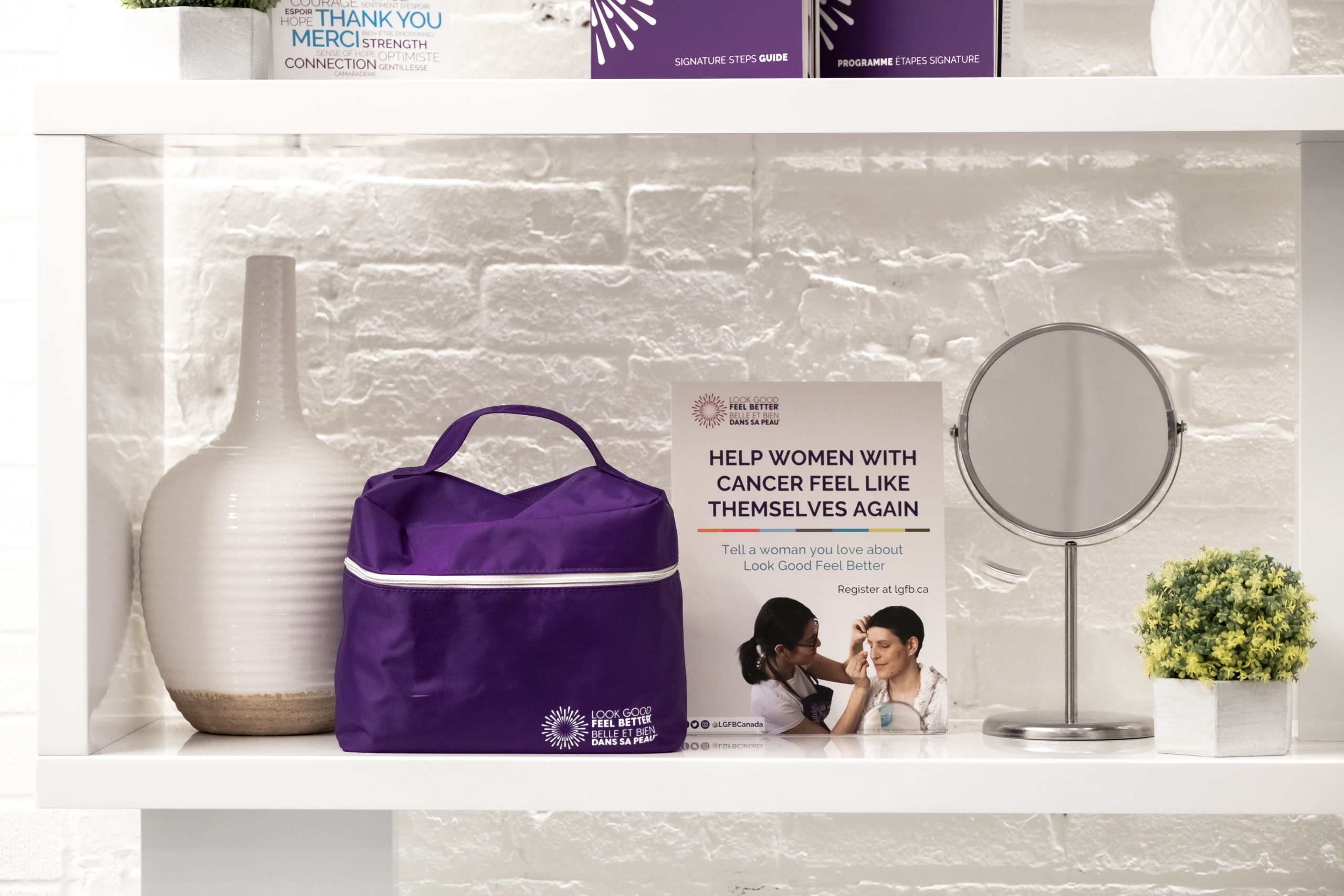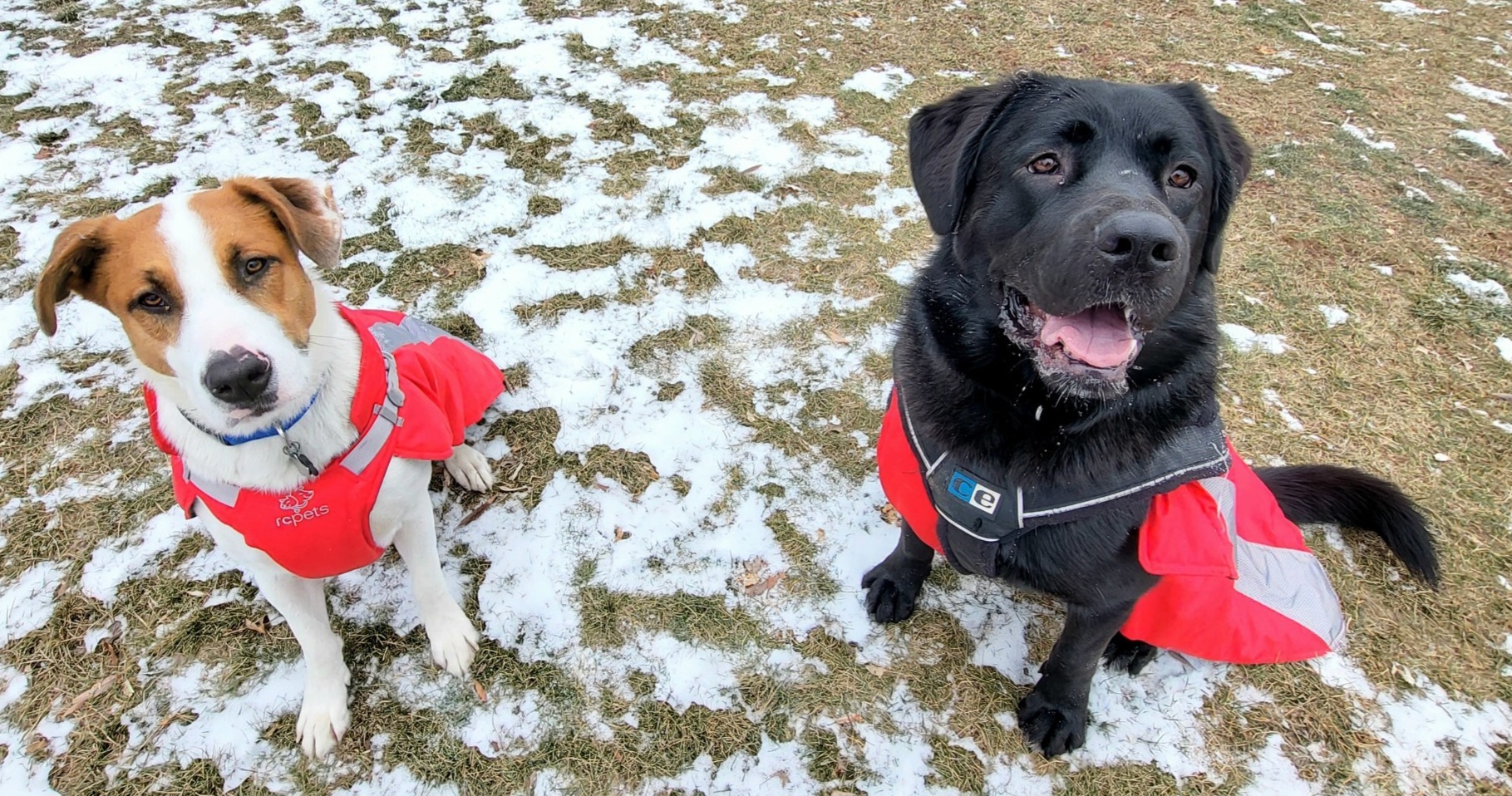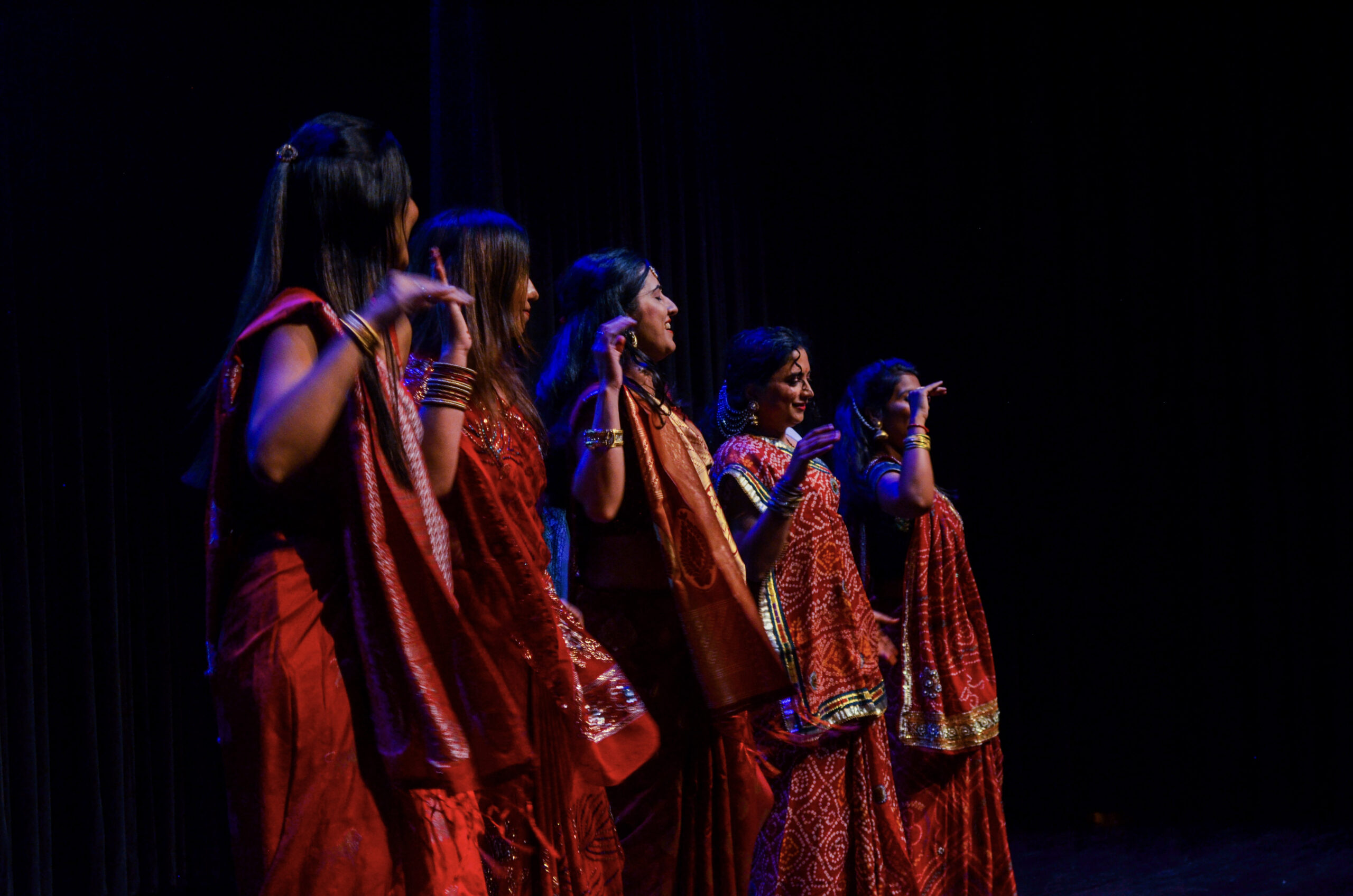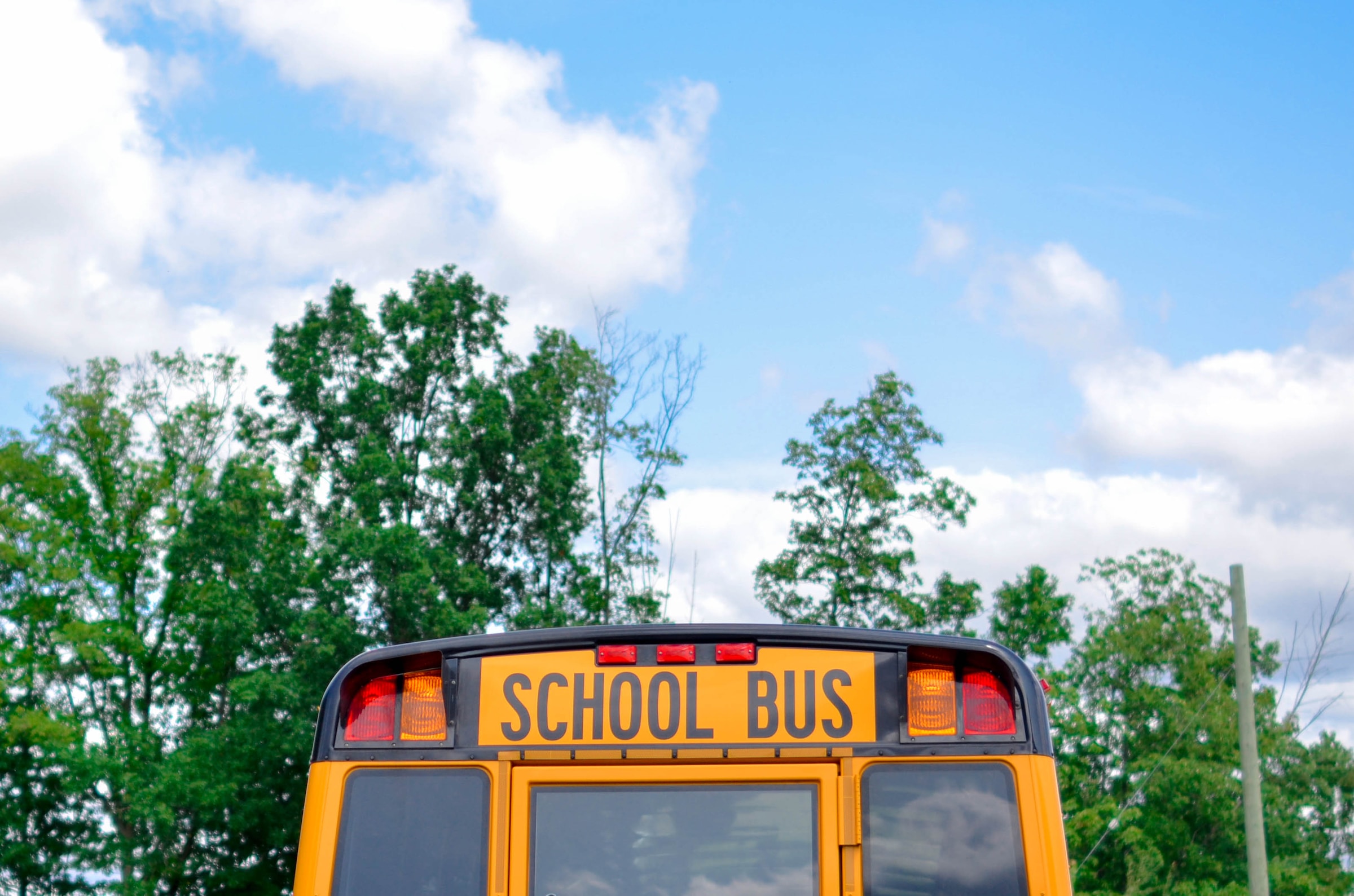Look Good Feel Better helps cancer patients feel more like themselves, and less like just a cancer patient, through their makeup, skincare, and wig workshops — and this year marks their 30th year.
Given that they help about 10,000 women across Canada each year, that means that Look Good Feel Better (LGFB) has touched the lives of up to 300,000 women. And this year, they’re extending their services to men as well. Burlington residents —however they self-identify — facing cancer can attend Look Good Feel Better workshops at Wellspring’s Birmingham Gilgan House in Oakville, Hamilton’s Wellwood Juravinski House, or online.
These workshops are not just about learning how to care for now-sensitive skin and disguise some of the effects of cancer treatment with makeup, or how to choose the wig or head covering that’s right for each individual, although all that is part of it. It’s not even about the purple bag filled with makeup donated by cosmetics companies that participants take home with them, although that is also part of it.
Sue Larkin, vice president of programs and marketing, says that what it’s really about are the connections made and the feeling of community that LGFB gives its participants facing cancer. Being in the workshop with others going through the same thing lets participants see — and feel — that they are not alone.
This fall, a workshop for men will be launched, so LGFB will be reaching even more people. LGFB’s sister organization in the U.K., who have been running men’s workshops for a few years, shared some key learning; LGFB adapted the program for Canadian men. The focus will be on skincare, facial hair grooming, and some makeup tips for covering up the effects of cancer and/or its treatment on the skin.
The pandemic, of course, affected how LGFB delivered workshops to people with cancer, who are often immunocompromised due to their treatment. Larkin notes that though the pandemic forced LGFB to run their workshops virtually, it had actually been in the works for some time; COVID just sped up their timeline. A virtual speakers’ series was also launched and is still available to view online.
Indeed, the virtual offerings have actually expanded LGFB’s reach: people from as far away as Nunavut have been able to attend, as have people without access to transportation or childcare. There was concern that the magic of connection would be lost in a virtual environment, but Larkin was relieved to discover that the magic still happened in the online workshops.
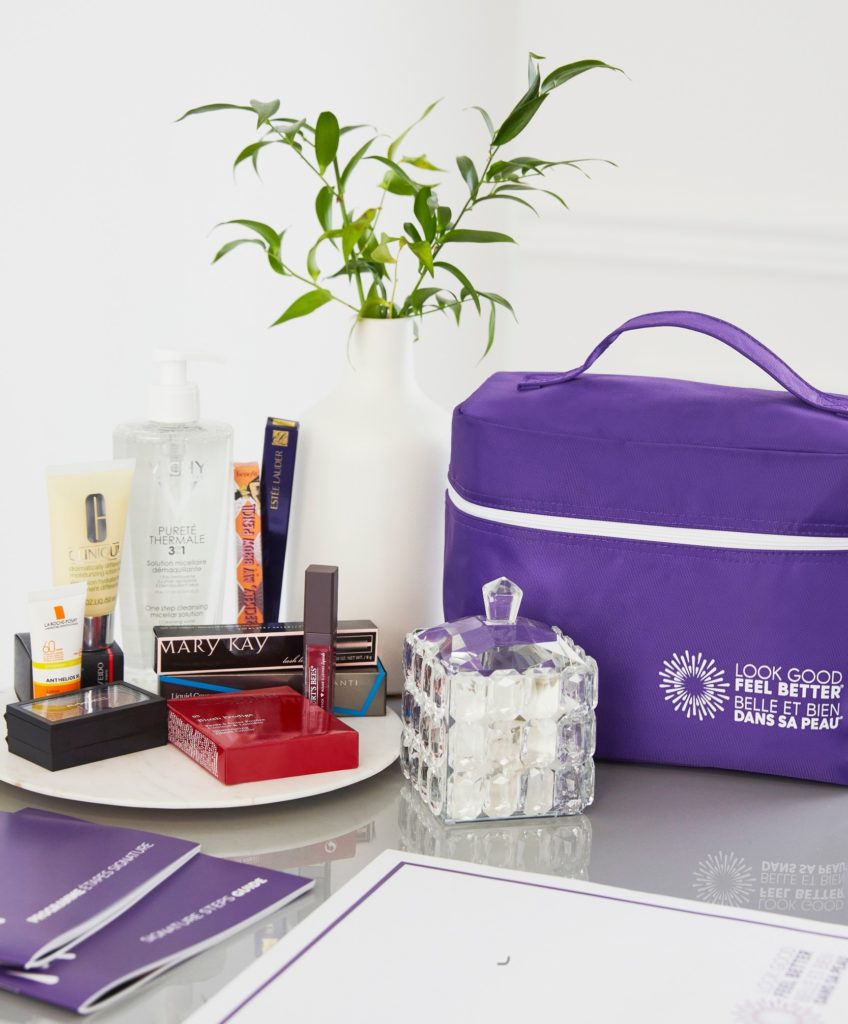
The online teen workshop has been particularly successful. The number of teenagers with cancer is (thankfully) fairly small, so for the teens who attend LGFB workshops, it may be their first time meeting others their own age dealing with the disease, making the experience particularly meaningful. The teenagers wanted more, to continue the connections with others like them, so LGFB designed extra workshops focusing on tips like bronzer or highlighter application —with deep conversations on the side.
Another offering is the online breast workshop, which educates people on breast care, what’s available in terms of breast forms and garments, and things to consider when deciding what to choose. The goal is to take the intimidation out of the process, empowering participants with information so they can then choose what is best for them.
In-person workshops have recently restarted, with COVID safety protocols in effect: masks must be worn, participants are 2 m apart, groups are smaller to allow for social distancing, vaccinations are required. Hand sanitizer was always present, and despite the masks, Larkin says that the magic of connection is still there, all while “making the workshop as safe as it can be.” You can register for in-person and online workshops at https://lgfb.ca/en/workshop/register-workshop/.
LGFB understands the importance of inclusivity, and while makeup kits have long included different shades of foundation and concealer for different skin tones (there are light-, medium-, and deep-toned kits), a more recent offering is a dedicated section online for Black women and other women of colour. Here, there is information on natural wigs, the thick keloid scars that occur more often on deeper skin tones post-surgery, and self-advocacy.
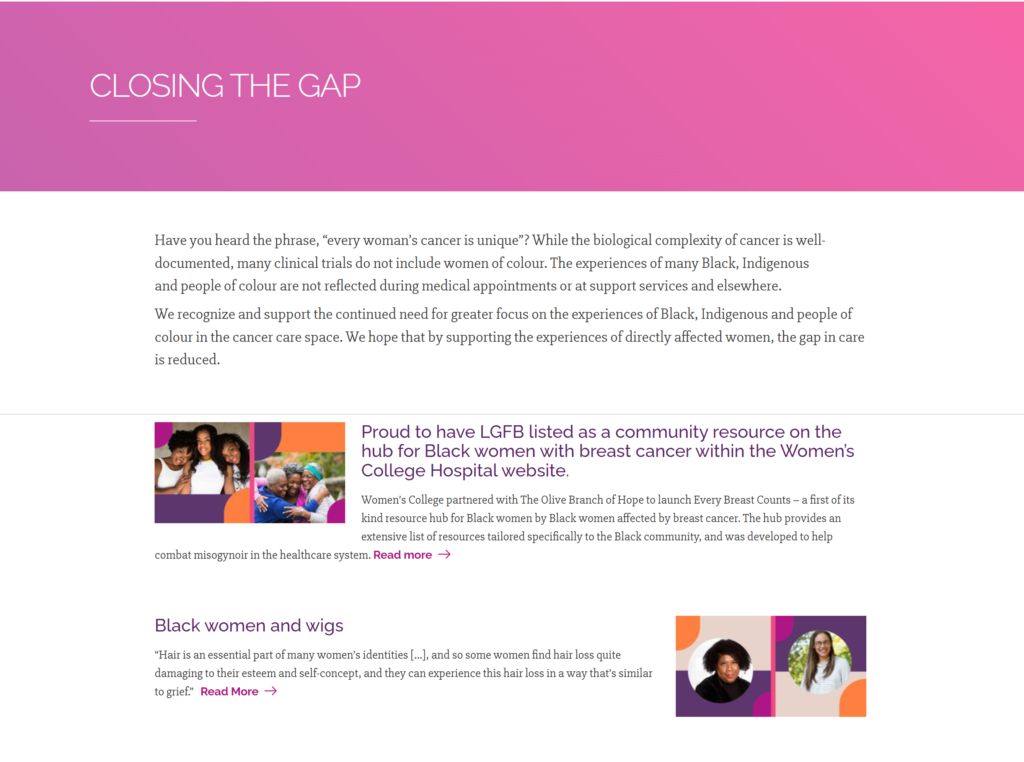
All of LGFB’s 1200 volunteers (some of whom have now been LGFB volunteers for 30 years!) have expertise in applying makeup or are wig specialists, and LGFB provides additional training to educate on cancer hygiene and in compassionate care training — on the unique challenges that someone with cancer might face, so volunteers are prepared to deliver compassionate care. “Empowering women, and educating women with information they need delivered with empathy and equity” is the aim, says Larkin.
LGFB gets no government or hospital funding; as Larkin notes, they are “100% donor-funded.” The signature Mirror Ball event is important for fundraising and “feels extra special this year,” says Larkin, as it’s back to in-person just in time for LGFB’s 30th birthday.
If you’d like to be a donor, you can go to lgfb.ca and click the donate button or you can host a community fundraising event (if you’ve got a birthday coming up, you could ask for donations instead of gifts, for example).
Another way to help is to spread the word: if you know someone dealing with cancer, tell them about Look Good Feel Better, tell them it’s okay to take that time for themselves. Cancer is isolating; family and friends help as best they can, but connecting with someone else who has that shared experience is so important, and Look Good Feel Better gives that to people — as well as excellent makeup tips.

